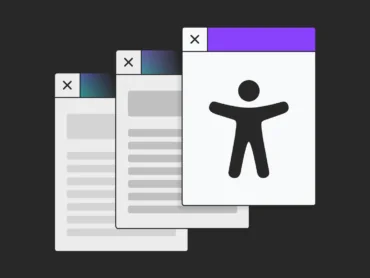Why Ruby On Rails?

David Heinemeier Hansson’s chief ambition was to make programmers happy. This is why he created Ruby on Rails – a framework that allows for efficient web-application development, doing a lot of work for its users. With Ruby, the programming becomes conventionalized, intuitive and more method-oriented. Should you be considering it for your recent project? To learn this, let us review Rails principles and see if they match your expectations.
Ruby on Rails as a Framework
Contrary to popular believe, Ruby on Rails is not a programmatic language. Those who used to rely on coding evergreens such as HTML and CSS can have a hard time understanding what RoR is. For sure, it extends the possibilities of Ruby – a high-functional language with ‘objects’ that can serve in many roles such as variables, data structures and functions.
Rails is a way to help Ruby developers save time on building web-applications. Using this open-source framework and an easy Ruby syntax they can refer to the conventions and components and avoid boilerplate – meaning little functionalities with plenty of coding.
What makes Rails attractive is its cost-effectiveness and ability to scale. For example, it can often take the dev team up to three weeks to prepare a functional solution that you can put live and show to the world.
What Can You Build with Ruby On Rails?
Every build on Ruby on Rails usually follows two seminal principles as part of the Rails philosophy. These are DRY and Convention Over Configuration; both explained concisely by the Ruby authors:
- “Don’t Repeat Yourself: DRY is a principle of software development which states that “Every piece of knowledge must have a single, unambiguous, authoritative representation within a system.” By not writing the same information over and over again, our code is more maintainable, more extensible, and less buggy.”
- “Convention Over Configuration: Rails has opinions about the best way to do many things in a web application, and defaults to this set of conventions, rather than require that you specify minutiae through endless configuration files.”
These practices let developers use Ruby for various web projects, including e-commerce sites and powerful social media platforms such as Twitter. Below, just a few more types of web projects where ROR turns up beneficial.
Ruby on Rails MVPs
We have long passed the days when you could release one version of your product. That is because there are too many pieces of the puzzle to solve.
Users change their preferences rapidly. Consequently, they might not appreciate all the features behind your web-app. Sure, initially, you consider all functionalities essential for your business, but reality usually quickly sets in.
To avoid turning things upside down, you can try building an MVP. With Ruby, you can start with some base modules – they ensure that you address the vital business goals to the audience.
Typically, you wait for the functional version of your app for several days. Once finished, you can hand the app over to the users – at the end of the day, they are the best advisors on what to add, remove, and modify.
Social Platforms
Ruby can process a massive amount of data. Knowing that you can use it to build applications that aim to exchange information between users on a large scale.
Everybody knows Airbnb – which is an excellent example of a platform that runs on ROR. It works as a booking system and lets users perform quick payment transactions. Another high-volume website with ROR architecture is Couchsurfing. It is where travellers can look for free accommodation and share their places.
Data-Heavy Websites
Ruby on Rails powers many well-known websites that get thousands of visits per day. Thanks to the framework, brands like Hulu, Twitch and Book – so the ones with very high traffic – can scale and maintain uninterrupted delivery.
What makes the giants put so much trust in ROR is the reliability of the platform. It is known for promoting test-driven development and keeping Secure Development Lifecycle. This means that developers can start by creating tests for functionalities that are automatically performed. Only when the test fails can they move forward with writing the code.
eCommerce
The online store is another field where Ruby On Rails has been used successively. Consider Shopify – one of the most popular selling platforms. It provides a great set of APIs to make integrations easy. It also helps developers build applications as well as expand the platform and meet the demand.
Think of how you could market, present and deliver your product. For you, as a current or potential e-commerce owner, the speed and the performance behind Ruby On Rails can be an opportunity to bring your ideas to live fast.
Where to Start with Ruby on Rails?
Ruby on Rails can help you run your project quickly. To start, an experienced team of Ruby professionals should help you break your concept down and find the best solutions. They can advise on the recommended functionalities, expected iterations and functional MVP.
Our ROR team got all this covered – so feel free to reach out and see what we can do for you.


